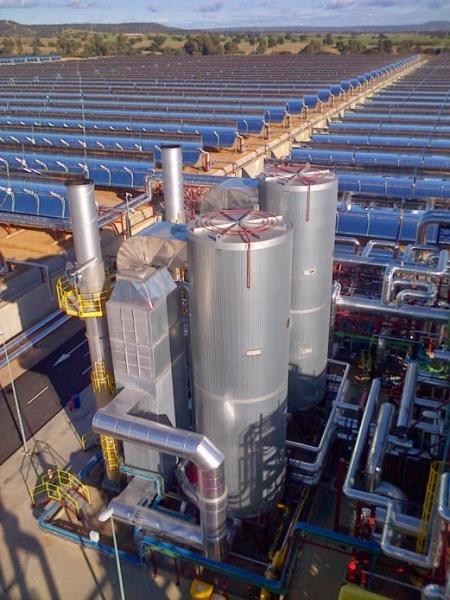Continuing with its strategic plan for international expansion, SUGIMAT S.L. has been awarded for the supply and start-up of the auxiliary heating system for thermosolar plants located to the far north of the African continent where there are already numerous biomass installations.
A thermal power plant is an industrial installation that, from transferring heat to a fluid (HTF) using solar radiation and its use in a conventional thermal-dynamic cycle, produces the power required to move an alternator for generating electricity similar to a traditional thermal plant.
The boilers supplied are to run on said fluid (thermal oil) at an output temperature of 393ºC
Ouarzazate
The plant located on the outskirts of the town of Ouarzazate (Morocco) includes a thermosolar plant with a nominal capacity of 160MV using parabolic solar technology with three hours of storage.
SUGIMAT is going to supply to this plant two 36MW boilers, that are capable of supplying up to a third of the thermal requirements of the plant. Both units shall run on diesel and shall provide heat exchangers of up to 100ºC with a performance greater than 90% thanks to its pre-heating air combustion units.
Bokpoort
The Bokpoort Thermosolar Power Plant shall be located close to the town of Upington, in the Northern Cape province of South Africa. The location of the plant, on the outskirts of the desert of Kalahari, takes advantage of the magnificent solar and environmental conditions in such a remote place. The installation has power of 50MW.
In each installation, SUGIMAT has supplied two 5.75MW boilers to avoid HTF freezing during idle periods of the plant as well as provisioning thermal support to the solar field with these two units running on diesel.
SUGIMAT strengthens its position as world leader of boilers of this promising technology and has supplied more than 500 MW thermal over 30 plants in Spain and the rest of the world.
Both plants came into service last year supplying clean energy to the booming economy of both countries at the same time as reducing their energetic dependency and avoiding the emission of 160,000 tons of CO2 per year.

